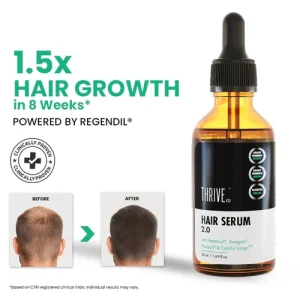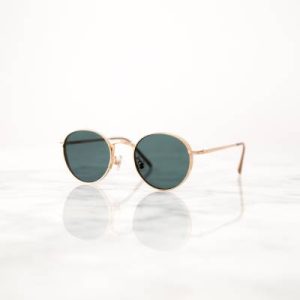Beauty has long captivated humanity—it’s a timeless concept that evokes admiration, longing, and even envy. Considered both a gift and a burden, beauty can shape lives, influence relationships, and even dictate societal judgments. Throughout history, thought leaders, philosophers, and literary giants have wrestled with these notions, often delivering profound insights through their words. This article delves into some timeless quotes that illuminate the dual-edged nature of beauty and invite readers to challenge their perceptions.
The Dual Nature of Beauty
“Beauty is only skin deep.” — Thomas Overbury
This succinct aphorism suggests that physical beauty is superficial and fleeting. While it may attract initial admiration, true beauty lies deeper, in character and integrity. Overbury’s quote invites us to question societal ideals that often prioritize appearance over substance. This sentiment resonates even more in today’s world, where social media perpetuates curated images that reinforce superficial standards.
Studies in psychology reveal how physical beauty can bias perceptions. The “halo effect” demonstrates that people often assume those who are physically attractive also possess positive traits, such as intelligence and kindness. This bias can unjustly elevate individuals, allowing them to navigate life’s challenges with fewer barriers, while simultaneously casting shadows on the worth of those deemed less beautiful.
The Burden of Beauty
“The most beautiful things in the world cannot be seen or even touched, they must be felt with the heart.” — Helen Keller
Keller’s poignant reflection highlights the intrinsic value of emotions and experiences over mere aesthetics. The pressure to conform to beauty ideals can lead to anxiety, depression, and even substance abuse. Many individuals find themselves imprisoned by societal expectations, leading to a warped sense of self-worth tied solely to appearance.
A survey by the American Psychological Association revealed that a significant number of women feel societal pressure to meet certain beauty standards, often leading to body dissatisfaction. Similarly, men are increasingly reporting feelings of inadequacy due to the influence of idealized masculine standards. Keller’s words remind us to explore deep connections, empathy, and emotional resonance as the true measures of beauty.
Fleeting Beauty
“Beauty fades, but ugly lasts forever.” — James Thurber
This biting commentary speaks to the transience of physical beauty. As time marches on, the body ages and inevitably changes, but character and spirit often endure far longer. Thurber’s sarcastic take on beauty serves as a reminder that while societal perceptions may elevate the beautiful, lasting value lies in the authenticity and kindness of one’s character.
In numerous cultures, aging has historically been seen as a negative quality, particularly for women. Yet, many find empowerment in growing older, embracing the wisdom and depth that life experiences bestow. Numerous studies indicate that older adults often exhibit greater emotional intelligence and resilience, attributes that certainly outweigh fleeting physical beauty.
Inner Beauty as Enduring Beauty
“Everything has beauty, but not everyone sees it.” — Confucius
Confucius invites us to expand our understanding of beauty, urging us to look beyond initial impressions. The idea that beauty is present in all things suggests a responsibility to cultivate perception and appreciation. This notion validates diverse experiences, realities, and identities that exist outside conventional beauty standards.
Artistic expressions, whether in literature, visual arts, or performance, often strive to illuminate the mundane beauty in everyday life. Contemporary movements, such as body positivity and inclusivity, challenge the restrictive definitions of beauty propagated by traditional media, urging society to embrace a more holistic view of what it means to be beautiful.
The Moral Dilemma of Beauty
“Beauty is the purgation of superfluities.” — Michelangelo
Michelangelo’s take hints at the ethical implications associated with beauty. The concept of “purging” suggests a cleansing process, elevating authenticity over mere embellishment. In an age where cosmetic enhancements are frequently touted as solutions for beauty standards, we see a growing tension between natural attributes and artificially constructed appearances. This dichotomy raises essential questions about self-acceptance and the lengths individuals go to feel validated.
Psychological studies indicate that the pursuit of beauty can lead to compulsive behaviors and significant stress. As societal pressures mount, more individuals find themselves grappling with identity crises, struggling to balance self-expression with conformity.
Conclusion: Redefining Beauty
The relationship between beauty and our perceptions of self and others is fraught with contradictions. Timeless quotes serve as a powerful lens through which we can examine cultural norms, personal experiences, and emotional truths. As we navigate an era where visual representation holds extraordinary sway, it’s crucial to cultivate a more integrated viewpoint that honors inner qualities alongside external appearances.
In redefining beauty, we pave the way for a more inclusive and compassionate society. Let us strive to recognize the complexities of beauty, balancing our admiration for aesthetics with a profound appreciation for humanity, compassion, and authenticity.
Related Products
-
Sale!
Product 2025-10-01
Cosmetic Products€14,90Original price was: €24,28.€18,18Current price is: €18,18.
€18,18 incl. VAT -
Top Cosmeric Product 2024 | Best Skincare & Beauty Solutions
Body Care€10,00€12,20
€12,20 incl. VAT -
Sale!
Soluta.
Accessories€200,00Original price was: €244,00.€244,00Current price is: €244,00.
€244,00 incl. VAT





